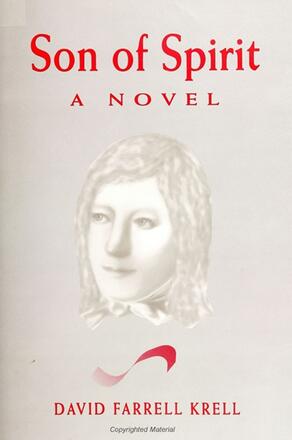
Son of Spirit
A Novel
Alternative formats available from:
A historical novel, this is the beautifully told story of Louis Hegel, illegitimate son of the philosopher G.W.F. Hegel. Ultimately disowned by his father and forced to use his mother's name, Louis died in Indonesia, as Ludwig Fischer, at the age of 24--the bastard son of SPIRIT.
Description
Son of Spirit is the story of a natural child of philosophy--the story of one of philosophy's bastards. Hegel's first son, Louis, known to posterity as Ludwig Fischer, was an illegitimate child born to Hegel's landlady in 1807. At the time, Hegel was completing his first major philosophical work, The Phenomenology of Spirit. In that work, the philosopher spoke out in the name of spirit and reason; in his life, he worried about the unreasonable accident of an unwanted son. For Louis represented the kind of contingency that can befall a spokesperson of spirit. Hegel tried to take Louis into his home, to acknowledge him, even to love him. Yet Ludwig Fischer was destined for an early, tragic death--destined precisely by spirit.
Son of Spirit is also the story of a second adopted child--Minna Herzlieb, one of Goethe's enduring loves--who had a more protracted but similarly tragic end. Louis Hegel and Minna Herzlieb lived for a time under the same roof, for as young children both were adopted by Friedrich Frommann, Hegel's bookseller in Jena. The stories of Minna and Ludwig therefore intertwine, allowing the novel to develop the conflict between Hegel and Goethe--the struggle between Hegel's "absolute spirit" and Goethe's "spirit of the Earth."
Son of Spirit shows how devastating illegitimacy is for human beings who are born to the righteous and the just. It shows how murderous the theories of the righteous and the just may prove to be for their children. Finally, the experimental yet meditative style of the novel demonstrates how powerfully Hegel's thought still dominates our own time. Hegel produced more than one bastard.
David Farrell Krell's first work of fiction, Nietzsche: A Novel, was published by SUNY Press. Krell is Professor of Philosophy at DePaul University in Chicago.
Reviews
"This work is a brilliant polyphonic fiction on thought, eros, and the limits of philosophy, and its significance--both literary and philosophical--is undeniable. It is not just interesting but indeed captivating!" -- John Sallis
"The novel itself is not a narrative novel. It is instead a succession of voices from the past. On the one hand, the novel reflects Hegel's philosophy, which is entirely a philosophy of reflection and declares that all human civilization has now reached the stage of self-reflection. Yet in literature it is only in the last half of our century that novels have become self-reflective monologues. Thus while the mood and language of the book belong to Hegel's time, the genre belongs to our time." -- Alphonso Lingis